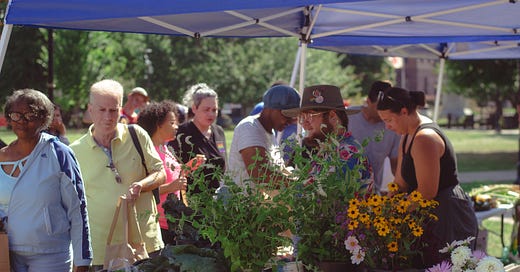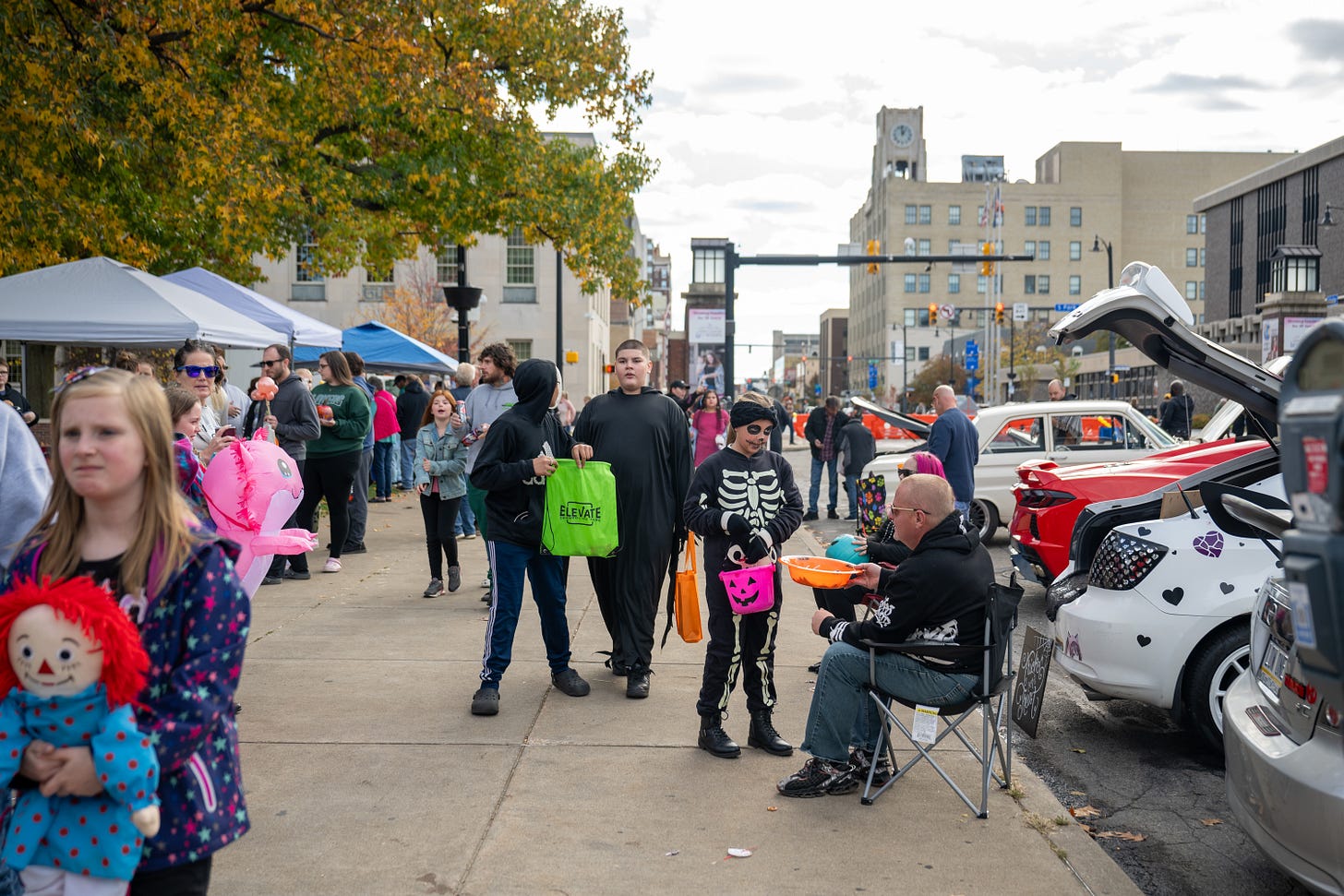Hyper-Capitalism Breeds Mistrust, Especially in Small Cities
If every interaction we have with our neighbors involves an exchange of currency, how do we build up our social currency? The answer is, we don’t.
Trust is a very important concept for small communities. It can be traded and exchanged freely just like any other currency. The problem is, we’ve increasingly replaced opportunities to trade trust with each other with opportunities to exchange money. Gig economy jobs like Uber Driver have replaced the need to ask a friend for a lift somewhere or to take a turn as the designated driver. In Erie, we’ve replaced opportunities to coexist in public spaces like our beautiful Bayfront with experiences that require cash (and sometimes a lot of it). The smaller and more inter-connected a city is, the more it benefits from a strong sense of social trust. Or conversely, the more it suffers from distrust.
The reason I love working in community events planning is that I can design experiences that exist for the sole benefit of building social capital. I can create free experiences that invite the community in to share something together, connect with each other, then part ways a little richer without having to exchange cash. I know that the Erie Downtown Partnership also exists to help build consumer density for our Downtown businesses, but I like to think that even those business owners benefit first from the trust they can build by meeting potential customers face to face on neutral ground in a public park during something like Fall Fest or around the tree during Downtown d’Lights. Investing in building authentic relationships with customers, especially in a small city, is worth double the energy you’re putting into your social media campaign. Trust is the most important thread that can bind a community together. The belief that your neighbor will help you without expecting anything in return is what connects and strengthens social bonds to come out the other side of a disaster like a storm or blizzard intact. Trust makes concepts like mutual aid possible and effective.
This summer we saw a lot of trust built through the Pay What You Can stands, and it was not always easy. Several neighbors would arrive at the stand with a mindset of true distrust and even outright contempt for others there, seeing their own neighbors as a threat to their ability to get the produce they need. People would argue about line jumping and bicker with each other about what was an appropriate amount to take and what was an appropriate amount to donate in return. We attempted to meet these reactions (to what was admittedly a foreign concept for most) with the same patience, compassion, and set of guidelines: 1. Give what you feel you can give 2. Take what you feel you need to take and 3. Don’t worry about what anyone else can give or needs to take. By the time we were holding our end-of-season harvest dinner, most repeat market attendees’ attitudes had at least cooled a bit and they were more comfortable with the notion that someone else’s needs were no threat to their own.
This is a very difficult concept to wrap your head around, especially for working class and impoverished populations who have learned to carefully protect what little they do have. It’s a natural survival mechanism that crops up in times of scarcity, even observable in animal populations. It’s instinct, and no one should be blamed for feeling this way. The real threat is a system that runs on a constant scarcity mindset. Hyper-capitalism and exploitative marketing manipulate our perception of scarcity constantly to illicit an emotional (and monetary) response:
· “They’re running out of the toy I want for my child; I better pay more for it.”
· “The views down there are more beautiful and I’m missing out, I better pay more for the experience.”
· “They’re going to run out of water at the concert, there’s so many people here. Of course, it’s fair that I should have to pay more for it.”
Again, trust is not just anathema to the system, it’s also the antithesis. If we built more trust, we would have no fear of scarcity. If we had no fear of scarcity, we might share more. If we share more, we would all trust each other more. It’s a cycle that needs to start somewhere. The easiest place to start is by doing something for someone without expecting anything in return. In fact, try to outright refuse anything in return. The more we attempt to squeeze money out of every interaction the more we sacrifice things like trust and create an unwelcoming environment out of our entire city, and that benefits no one except those who seek to divide us.






This was a surprising email that you wrote. Pretty much dead on. Back in the mid 1970’s I realized the value of community. Since then I’ve tended to live in the cities. Not much else made sense to me.